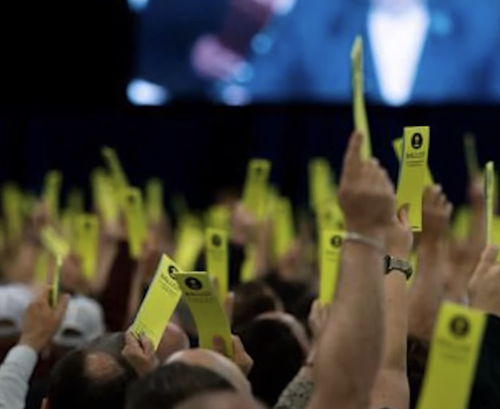U.S. pastors are struggling with post-pandemic burnout: A survey indicates half considered quitting since 2020, The Associated Press’ Peter Smith reports.
U.S. attacks on Jews and Jewish institutions increased 360% in the three months that ended Sunday, according to Anti-Defamation League data cited by the Washington Times’ Mark A. Kellner.
And online Bible reading continued to increase in 2023, Lifeway Research’s Marissa Postell Sullivan notes.
This is our weekly roundup of the top headlines and best reads in the world of faith. We start with the evangelicals supporting former President Donald Trump in Monday’s Iowa caucuses.
What To Know: The Big Story
The 2024 voting starts: What will happen Monday in the presidential campaign’s first formal test at the ballot box?
“Donald Trump seems to have locked down a majority of the evangelical Iowan vote in this year's Republican caucuses, even as local leaders have tried to steer them toward his competitor, Ron DeSantis,” Axios’ Linh Ta writes.
But who are these evangelicals?
“They are not just the churchgoing, conservative activists who once dominated the G.O.P.,” according to the New York Times’ Ruth Graham and Charles Homans.
The Times explains:
Being evangelical once suggested regular church attendance, a focus on salvation and conversion and strongly held views on specific issues such as abortion. Today, it is as often used to describe a cultural and political identity: one in which Christians are considered a persecuted minority, traditional institutions are viewed skeptically and Mr. Trump looms large.









